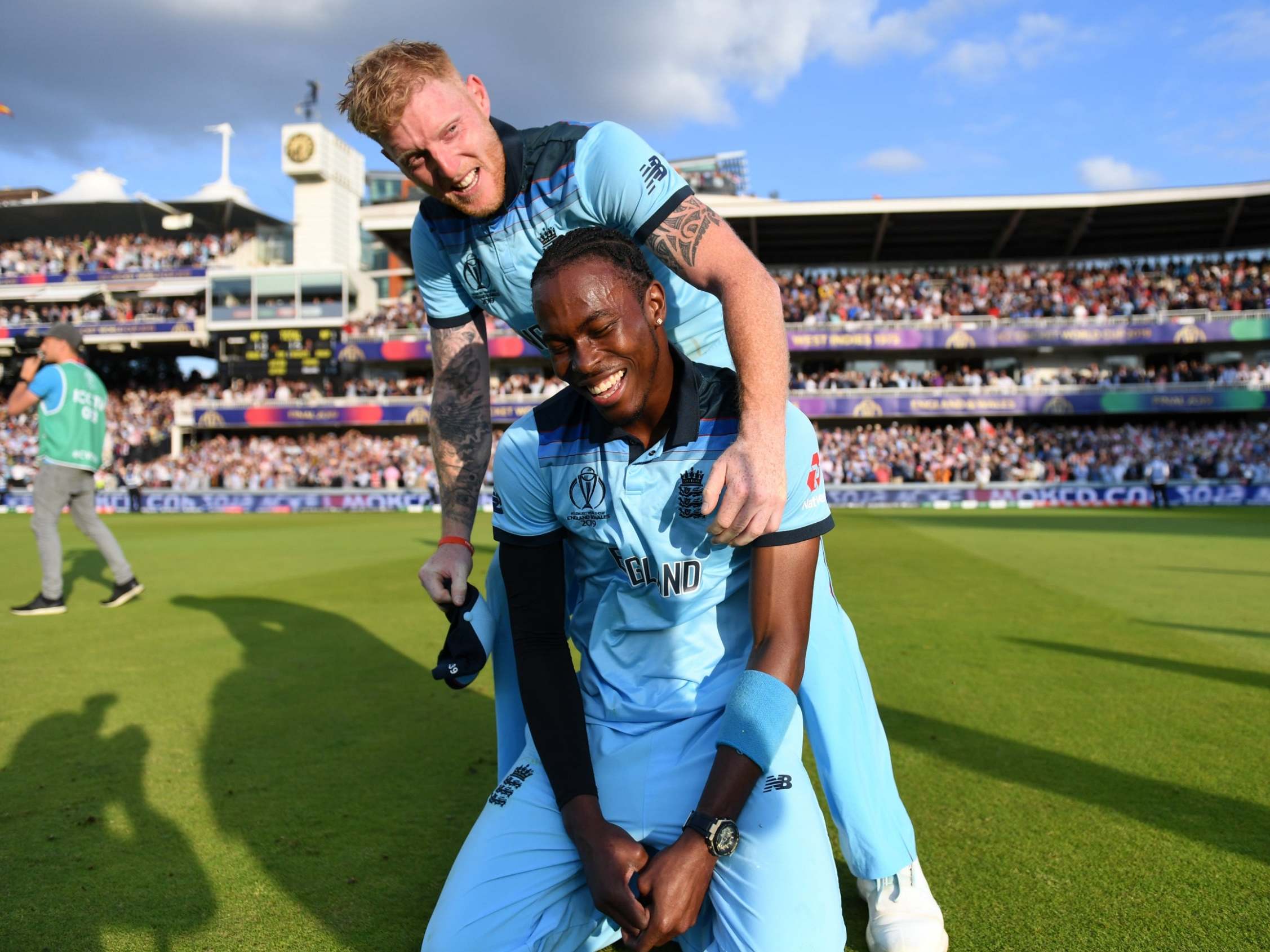Cricket must take it’s once-in-a-lifetime chance to spark a grassroots boom and secure the World Cup’s legacy
As rugby union proved after the 2003 World Cup win in Australia, reaping the benefits of elite success is often easier said than done
England’s World Cup victory can spark a grassroots boom in every corner of the country.
At least that’s the what the ECB hope after Eoin Morgan’s stunning Super Over win against New Zealand at Lords on Sunday.
England began the World Cup with the sole aim of winning the tournament. The ECB, meanwhile, was also intent on using the tournament as a means of mobilising a new generation of cricketers.
Whether that ambition comes similarly to fruition, only time will. Last week the ECB, along with the ICC trumpeted their achievement of getting over one million children aged between five and 12 involved with the sport over the course of the tournament.
The hard work of ensuring a long-term legacy, though, starts now. And as rugby union proved after the 2003 World Cup win in Australia, achieving that is often easier said than done.
Nick Pryde, the ECB’s director of participation and growth, tells The Independent that as well as attracting new players to the sport, it’s also essential to keep young players involved in the game for as long as possible.
“We know that it’s particularly difficult around those teenage years to keep players in the game,” he says. “That’s clearly going to be a really important focus but that’s why special moments like hosting a World Cup on home soil are really important to capture the hearts and the minds of the next generation of cricketers.
“There’s no denying that, as in a number of team sports, there are a number of challenges, particularly when it comes to participation.”
Pryde was part of the Cricket Australia team during the 2015 World Cup and saw at first hand the impact that that tournament – which was also won by the hosts – had when it came to getting more people, young and old, involved in the sport.
“What tournaments do is drive engagement,” says Pryde. “We saw in Australia that more kids were inspired to pick up the bat and the ball. That’s probably amplified further when the home team gets to lift the trophy. You see that here, whether it’s Wimbledon or the football World Cup – major events drive play.
“On the back of getting one million kids involved in the game, we want to see their involvement sustained, we want to see these youngsters get involved in clubs but will also want to encourage the volunteers who essentially underpin the health of cricket in this country.”
Gibson is a coach at Cockermouth Cricket Club, where Ben Stokes learnt his trade as a player following his move from New Zealand to Cumbria – and he believes that building a lasting legacy will be a tough task. But like England’s run chase against the Kiwis, not impossible.
“I think we’ve lost a generation,” says Jon Gibson, a cricket coach who worked closely with Stokes as a youngster. “I’m dealing with parents who don’t necessarily understand the game and that's something completely new to me.
“I was encouraging people a couple of days before the final to go to Channel 4 because the more people sitting in their lounge watching cricket on terrestrial television, the more powerful the message.
“There were over 100 people at the club (on Sunday) watching Ben and England, players who played with him, old school-mates and even those who weren’t born when he played for Cockermouth.
“I hope that if this win does anything, it enthuses the nation. If we hadn’t had won the World Cup then I would have been more than a little worried about the grassroots future of the club game in this country because it has been teetering. That win will help.”

Essential for the legacy of this first World Cup win is for cricket to permeate diverse communities up and down the country, something that Lord Kamlesh Patel of Bradford, the chair of the ECB South Asian Advisory Group, knows only too well.
At the start of the month, with England’s future in the competition still in the balance after their loss to Australia in the group stage of the competition, he told The Independent that role models were critical.
“Players such as Adil Rashid and Moeen Ali are crucial because it’s about heroes, it’s about kids looking at these players and saying to themselves ‘I can be that person’,” he said at the launch of a new 24-hour Urban Cricket Centre in Leyton, East London.
“What was very interesting and what we’ve learnt over the past year and a half is that Moeen and Adil are heroes to a lot of kids but, because of the IPL, a lot of Asian kids also look at the likes of Jos Buttler and Ben Stokes and Jofra Archer and want to play the game because of them as well.
“It’s not about the colour of your skin or where you come from. It’s about having those heroes that resonate with the kind of exciting cricket that these kids want to watch and play.”
The good news, however, has already started rolling in. Having just returned from a net session at Cockermouth on Monday night, Gibson claims to have already seen the ‘Stokes Effect’ in action.
“We had two new players arrive and ask if they could get involved at nets this evening,” he says. “That’s a great sign.
“Sunday at Lord’s gripped the nation. People who have never really watched cricket before have said to me that this was one of the most extraordinary sporting events they had ever seen. We need to make the most of that.”
It could be a once-in-a-lifetime opportunity.
Join our commenting forum
Join thought-provoking conversations, follow other Independent readers and see their replies
Comments
Bookmark popover
Removed from bookmarks